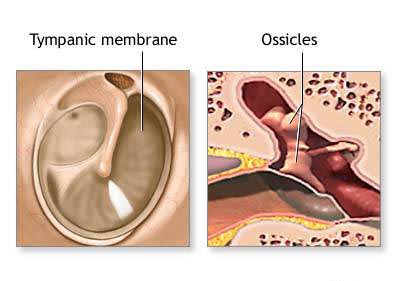Overview
Ear Infections are the most common illnesses in babies and young children. Most often, the infection affects the middle ear and is called otitis media. The tubes inside the ears become clogged with fluid and mucus. This can affect hearing, because sound cannot get through all that fluid.
If your child does not yet talk, you need to look for signs of an infection:
- Tugging at ears
- Crying more than usual
- Ear drainage
- Trouble sleeping
- Balance difficulties
- Hearing problems
Often, ear infections go away on their own, but your health care provider may recommend pain relievers. Severe infections and infections in young babies may require antibiotics. Children who get frequent infections may need surgery to place small tubes inside their ears. The tubes relieve pressure in the ears so that the child can hear again.

Can Nose-Blowing Cause An Ear Infection ?
The answer is yes, it most definitely can. When you blow your nose, some of the fluid comes out, while some of it enters the ear through the Eustachian tube. Try instead to take in the mucous and cough it out from your mouth. If you simply must blow your nose, don't close one nostril and blow out from the other. Blow out from both nostrils.
Ear Infection Symptoms
- Symptoms of Ear Infection include:
- Ear pain,
- Fullness in the ear,
- Hearing loss,
- Ringing,
- Discharge from the ear,
- Nausea,
- Vomiting , and
- Vertigo.
- Symptoms may follow a respiratory infection such as the common cold.
- Discharge from the ear canal is often caused by the infection known as swimmer's ear (otitis externa). A painful ear with decreased hearing is often the result of otitis media, an middle ear infection.
Ear Infection Treatment
- Rest : avoid further scuba dives, coughing, sneezing, bending, and attempts to equalize the ears.
- Pain may be relieved with 1-2 acetaminophen (Tylenol) every four hours and/or 1-2 ibuprofen (Advil, Motrin) every 6-8 hours.
- Pseudoephedrine (the active ingredient in over-the-counter medications such as Sudafed) 30 mg tablets, one every six hours for 2-3 days, may ease ear pressure. (People with a history of high blood pressure should avoid this product.)
- For infections of the ear canal (otitis externa): neomycin (Ak-Spore HC, Cortisporin, Neotricin HC, Ocutricin-HC), polymyxin B, and hydrocortisone (Cortisporin, Otocort, Poly Otic), two drops in the ear canal four times per day for five days, may also be used.
- If pain occurs, discontinue treatment and seek medical attention.
- Oral antibiotics are usually recommended for discharge from the ear, nose, or mouth. If infection develops, continue antibiotics for at least five days after all signs of infection have cleared.
For more information, medical assessment and medical quote
as email attachment to
Email : - info@wecareindia.com
Contact Center Tel. (+91) 9029304141 (10 am. To 8 pm. IST)
(Only for international patients seeking treatment in India)










